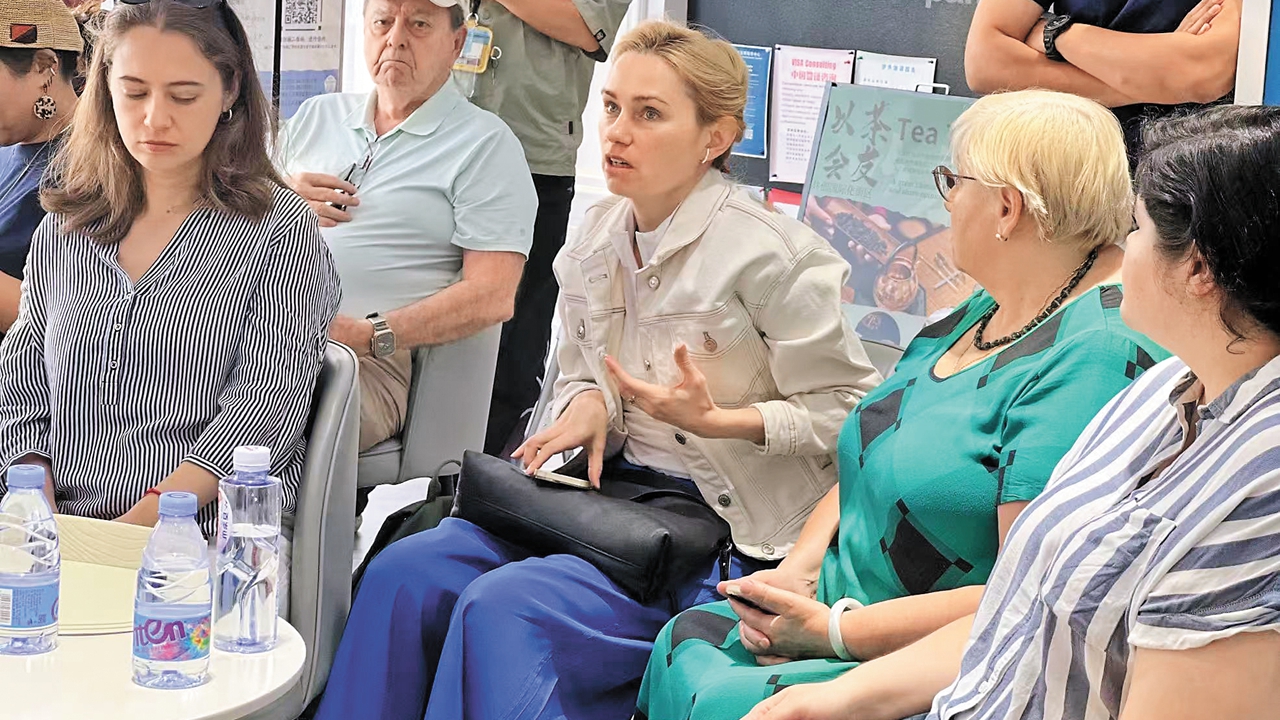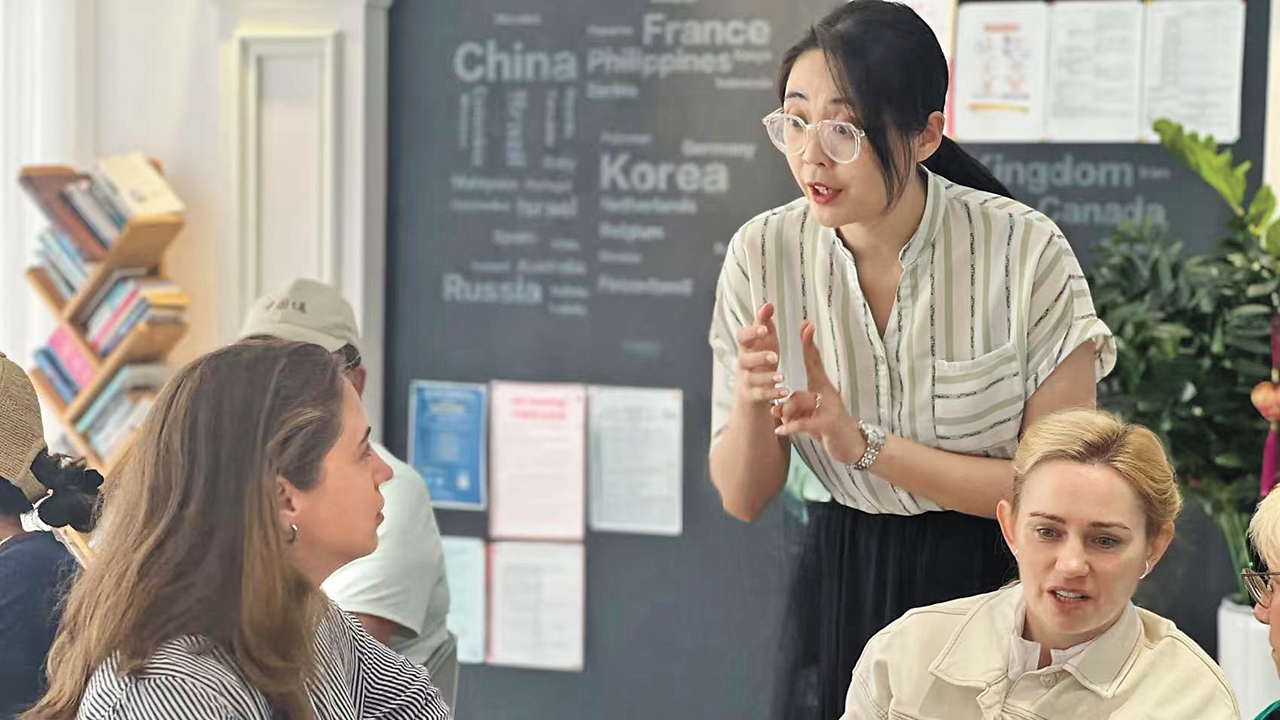Seminar spotlights marriage law, inheritance notarization
Writer: Wei Jie/Tao Dandan | Editor: Lin Qiuying | From: Original | Updated: 2025-06-16
Nearly 20 residents from mixed-nationality families attended a specialized seminar on Chinese marriage law updates and inheritance notarization in Shekou last week, eager to understand their legal rights and obligations under reforms that came into effect at the start of this year.
 A participant speaks while attending a seminar on Chinese marriage law updates and inheritance notarization in Shekou last week. Courtesy of Shekou MSCE
A participant speaks while attending a seminar on Chinese marriage law updates and inheritance notarization in Shekou last week. Courtesy of Shekou MSCE
The seminar, organized by the Shekou Management and Services Center for Expats (Shekou MSCE), was held at the Shekou Foreign Legal Assistance Center. Jia Yayin, director of the Foreign-related Legal Committee at Guangdong Yingzun Law Firm, and Mai Tong, from the Qianhai Notary Office, were the featured speakers.
China updated the Judicial Interpretation II on the Marriage and Family Section of the Civil Code earlier this year, sparking widespread attention, especially among families involved in cross-border marriages. The new regulations, which address a broad range of issues closely tied to property, children, and financial rights, present particular challenges for mixed-nationality families navigating different legal systems and cultural backgrounds.
Jia provided an in-depth analysis of key legal topics impacting cross-border marriages, including property disputes in cohabitation, shareholding in companies established after marriage, illegal detention of children born within marriage, and property distribution for children in divorce settlements. Drawing on real-world case studies, Jia elaborated on these issues with thorough legal insights, sparking active interaction and lively discussion among participants.

Jia Yayin (C), director of the Foreign-related Legal Committee at Guangdong Yingzun Law Firm, engages with attendees during the seminar.
Focusing on inheritance law, Mai explained the intricacies of foreign-related inheritance notarizations. She explained that their complexity is due to conflicting international legal systems and cultural conventions. She noted that notarization of succession for foreigners in China generally applies only to properties located within the country. Estates held abroad remain subject to the respective foreign jurisdiction's inheritance laws, requiring separate notarization processes.
She highlighted the necessity for foreigners to first obtain notarized certificates from their home countries, authenticated for use in China, before proceeding with inheritance notarization domestically.
The seminar received enthusiastic feedback from participants. Daria, an attendee from Moldova, expressed heartfelt thanks, saying, "The professional, insightful explanations were incredibly helpful. This is vital in raising awareness of legal matters we should consider before marriage. Understanding these issues builds a stronger foundation and helps prevent conflicts that may lead to divorce."
Olga, a Shenzhen resident with a China-Ukraine family, praised the practical value of the seminar. "I learned a lot about laws applying to cross-border marriages, which gives me greater confidence in managing our family affairs."
The seminar was part of the Shekou Foreign Legal Assistance Center’s new initiative, “ Hot Topic in Shekou,” which is designed to meet the real needs of expats.
About Notarization of Succession
Inheritance notarization certifies the validity and legality of a successor’s inheritance rights. For foreigners, this process is complicated by varying national laws. Notaries must first determine applicable laws by considering habitual residences, nationality, property locations, and existing wills. Cross-border inheritance demands careful coordination between jurisdictions to avoid legal conflicts and safeguard the rights of heirs.